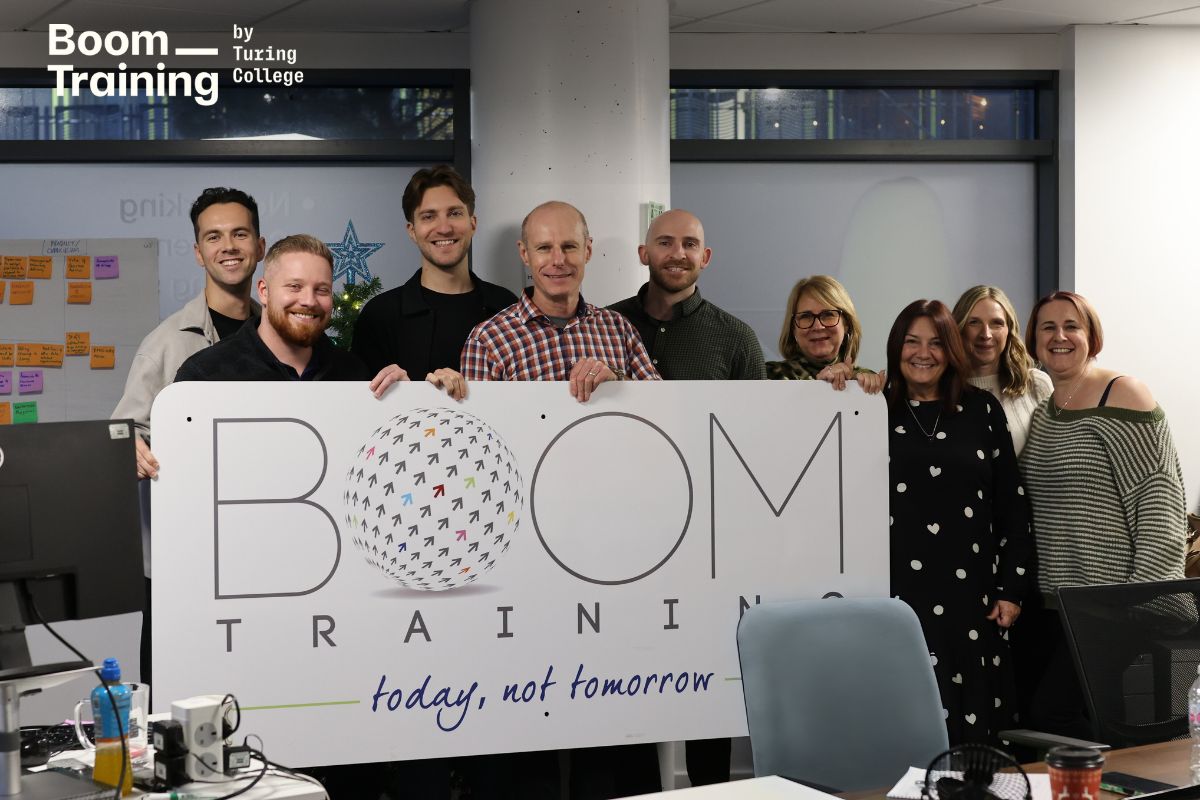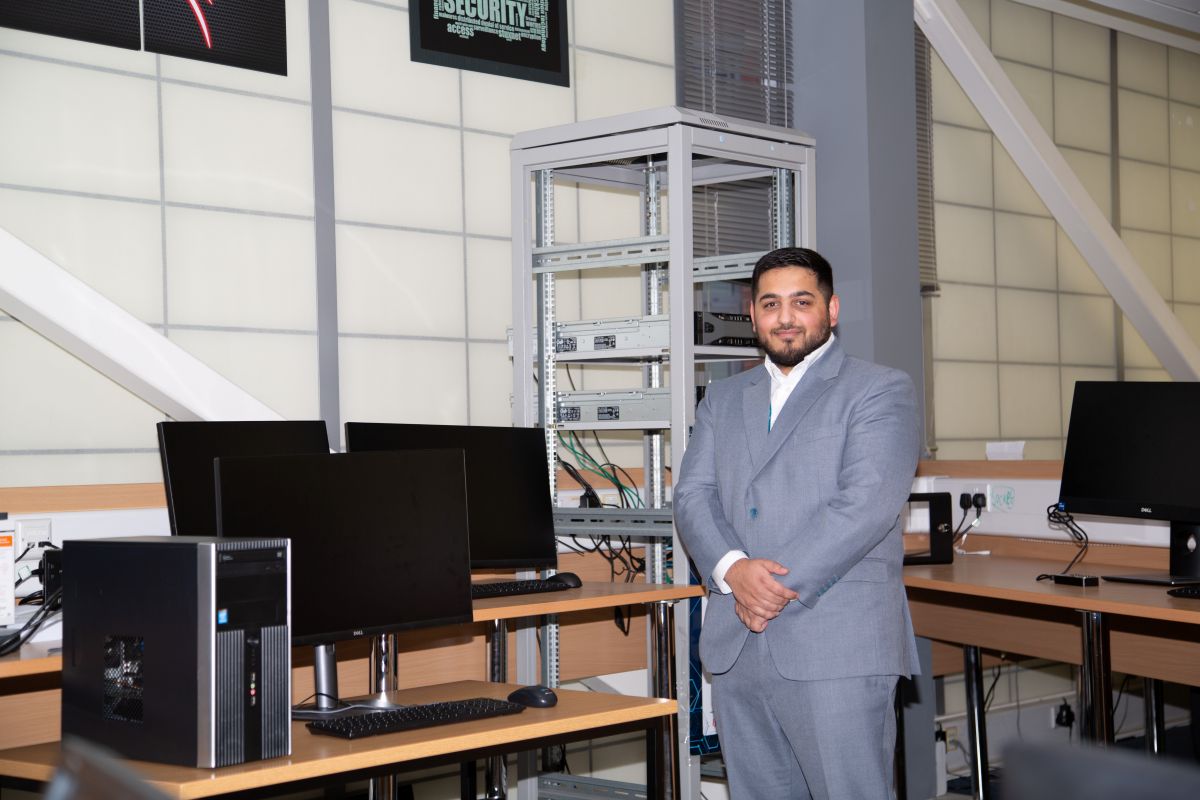Bridging the UK’s Skill Gap: Insights from Coursera on Future Strategies

The UK has invested heavily in becoming a leader in science and technology, particularly in artificial intelligence. Despite these efforts, Coursera’s 2024 Global Skills Report reveals troubling trends in the nation’s progress. In an exclusive Q&A, Nikolaz Foucaud, MD EMEA at Coursera, discusses these trends and explores how educational institutions and businesses can collaborate to bridge the skills gap.
Q: Nikolaz, Coursera’s Global Skills Report indicates that the UK ranks 45th globally for technology and business skills proficiency. What specific skills are UK learners lacking globally, and how can educational institutions and businesses collaborate to bridge this gap?
Coursera’s Global Skills Report 2024 ranks the UK 45th globally for technology and business skills proficiency. Although the UK is over-indexing in areas such as bioinformatics, machine learning algorithms and applied machine learning – indicating higher-than-average rates of enrolments in courses that equip learners with these skills – there are major areas of concern. This year’s domain rankings see the UK ranked 52nd for Business skills and 46th for Computer Science skills. With 93% of businesses reporting a technology skills shortage, increased investment from, and collaboration among businesses, educational institutions and government is critical if the UK seeks to cultivate an internationally competitive workforce.
Businesses must take a continuous learning approach while higher education institutions should work with industry leaders to develop curricula that meet the evolving needs of the technology sector. The government should incentivise businesses to invest in upskilling programmes, while public-private partnerships can facilitate the provision of industry-recognised professional certificates and micro-credentials to ensure that learning is practical and aligned with market needs.
Q: How can we raise productivity and innovation in the UK and Globally through skills?
Increasing productivity and innovation depends on increasing investment in education and training. Concerted efforts to increase the UK’s AI literacy will be key to this, with research by KPMG predicting that effective use of generative AI could add £31 billion of GDP to the UK economy in the next decade. By increasing both business and government investment in AI upskilling, we can cultivate an agile workforce capable of driving innovation through effective use of cutting-edge technology.
Promoting AI skills across different sectors is crucial. This includes not only teaching technical skills, but also fostering an understanding of how AI can be used to improve processes, enhance decision-making and drive innovation. We also need to foster a culture of lifelong learning. This means creating an environment where continuous professional development is valued and supported, ensuring that the workforce remains adaptable and prepared for technological advances. To support this, educational institutions should offer modular and flexible learning pathways that allow individuals to continuously update their skills.
Q: How can we encourage lifelong learning and CPD for all learners?
Employers can play a crucial role by supporting continuous professional development (CPD) through initiatives like paid study leave, funding for courses, and recognising newly acquired skills within their organisations. Businesses must offer flexible online learning options that can fit into the busy lives of working adults. These options make it easier for individuals to continue their education without having to sacrifice their careers. Implementing career progression frameworks that reward continuous learning and skill acquisition can motivate employees to invest in their development.
Additionally, government programmes that subsidise adult education and provide tax benefits for individuals and companies investing in lifelong learning can significantly enhance participation rates. Given the 70% decline in publicly funded qualifications started by adults since the early 2000s, reversing this trend is critical. Public awareness campaigns can also highlight the benefits of lifelong learning, not just for career advancement but for personal growth and adaptability in a rapidly changing world.
Q: The report highlights a surge in global GenAI course enrollments. How can we improve Generative AI literacy in learners and employers? As Gen AI is so fast moving, what are the growing trends for education institutions need to explore and unpack for courses and qualifications in the future?
Improving Generative AI skills among learners and employers requires a comprehensive approach. The 1,060% year-on-year increase in global enrolments in GenAI courses represents a recognition that this technology, and these skills, will truly define the future of work. To build AI literacy, we should start by promoting foundational courses such as Generative AI for Everyone to provide a basic understanding of AI concepts.
For more advanced skill requirements, tailored AI courses for specific industries can be utilised, enabling employees to apply AI effectively in their fields. Corporate training programmes should integrate AI training to ensure that employees can use tools and processes enabled by the technology. For example, companies can offer in-house training, workshops and seminars led by AI experts to provide better understanding of the technology and demonstrate its practical applications. In addition, fostering a community of AI practitioners through networking events, hackathons and collaborative projects can enhance learning and innovation.
Q: We are in a fast moving world, particularly with AI and GenAI, how can education establishments make sure their courses are relevant and useful in a fast moving tech world?
Educational institutions need to stay ahead of the curve by exploring growing trends in GenAI and related fields. One key area is AI ethics and governance, which will become increasingly important as AI systems are deployed more widely. Courses covering ethical considerations, bias mitigation and regulatory frameworks will be essential.
Interdisciplinary applications of AI are another critical trend. Institutions should develop programmes that integrate AI with other emerging technologies, such as the Internet of Things (IoT), blockchain, and quantum computing. This will prepare students to work on complex, multifaceted problems and develop innovative solutions.
Q: The report shows a growing interest in micro-credentials, such as Professional Certificates. How can education institutions offer these services and also make sure that they are branded in a way that is valuable to learners and employers?
Micro-credentials, which have seen a 59% YoY increase in enrolments on Coursera in the UK, provide a flexible and efficient way for learners to acquire specific skills that are immediately applicable in the workplace. Institutions should emphasise the practical, work-ready nature of these qualifications and work with industry leaders to ensure they are valued by employers. Partnering with leading tech companies, such as Google, Meta, AWS, and IBM, also ensures that the credentials are industry-recognised and valued.
Offering these kinds of stackable, modular learning pathways allows for rapid adaptation to new technologies and for learners to build comprehensive skill sets over time. For example, short courses and bootcamps focused on the latest developments in AI, machine learning, and cybersecurity can provide learners with up-to-date knowledge and skills. Institutions should also focus on teaching fundamental principles that remain relevant despite rapid changes in specific technologies, such as critical thinking, problem solving, and adaptability.
Q: Despite the urgent need for cybersecurity skills development, European enrollments in cybersecurity courses declined. How can we encourage more UK and global learners to upskill in Cybersecurity?
Given that half of UK companies reported a cyber incident or data breach in the past 12 months, the need for more skilled professionals is urgent. To encourage more learners to upskill in cybersecurity, we need to raise awareness about the critical importance of these skills and the career opportunities available. Integrating cybersecurity modules into broader tech and business programmes can highlight its relevance.
The current talent pipeline for cybersecurity is reliant on sourcing graduates, which may not be sufficient to source skilled cybersecurity professionals at the speed and scale needed to adjust to requirements. Alternative credentials that prioritise essential cybersecurity skills are needed. Offering industry-vetted professional certificates with practical, hands-on experience from leading tech companies like Google can attract more learners and signpost these alternative pathways that help train competent professionals in months rather than years. Scholarships or financial incentives for cybersecurity courses can also significantly boost enrollment.
Q: Is there a need for generic courses and qualifications to build in AI productivity courses or training for all learners in the future? Eg GenAI prompt engineering and skills for junior to senior managers?
As AI continues to change work across the economy, there is a growing need for foundational courses and qualifications that build AI productivity skills for all learners. Courses on GenAI prompt engineering, AI-driven decision making and AI ethics should be included in both technical and non-technical professional development programmes. These courses should be targeted at different levels, from junior staff to senior managers, to ensure that everyone can harness the potential of AI in their respective roles. Given the potential of AI, it is essential to provide accessible and relevant training that meets the needs of all learners, regardless of their background or career stage.
To summarise, Coursera’s 2024 Global Skills Report highlights the UK’s urgent need to address its tech and business skills gap. Strengthening collaboration between educational institutions, businesses, and the government, alongside fostering a culture of continuous and lifelong learning, is crucial. By promoting AI literacy and offering flexible, industry-recogniaed learning pathways, the UK can build a workforce ready to meet the demands of the evolving tech landscape, enhancing national productivity and global competitiveness.
By Nikolaz Foucaud, Managing Director, Coursera











Responses